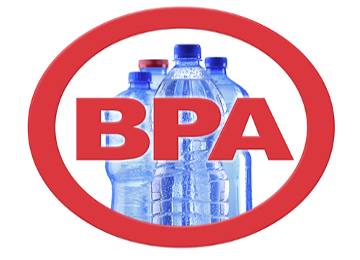Bisphenol A (BPA) Triggers Changes in Rats that may lead to Breast Cancer

New research suggests that the chemical BPA changes how genes function in the mammary glands of rats exposed in their mother’s womb, leaving them more vulnerable to breast cancer later in life.
The mother rats were injected with amounts that “we would expect to find in humans,” said Dr. Ana Soto, a Tufts University professor and senior author of the study published in the journal PLOS ONE. The study is the first to examine what impact fetal exposure to bisphenol A has on the DNA of mammary glands as they age. The researchers said their findings indicate that exposure to low amounts of the ubiquitous chemical, which mimics estrogen, might cause permanent changes in gene activity that lead to breast cancer.
“We saw the mammary glands start to develop in an erroneous way,” Soto said. “The glands later on had increased probability of getting cancer.”
Soto previously reported that female rats exposed to BPA while in the womb were more likely to have pre-cancerous lesions in their mammary glands. The new findings suggest that this is likely due to epigenetic changes, which are heritable changes in how genes are activated.
BPA is used to make polycarbonate plastics, as well as the liners of some canned foods and beverages, paper receipts and dental sealants. It is found in nearly all people tested.
The rat studies should be a red flag for humans, said Michael Skinner, a professor and researcher at Washington State University who specializes in epigenetics. Skinner was not involved in the study.

Image: About 230,000 U.S. women are diagnosed with breast cancer each year.
“Biology is extremely conserved for all mammals. From rats to mice to humans to primates, we all have almost exactly the same organ system and very similar endocrinology,” Skinner said.
Breast cancer affects about one out of every eight U.S. women. An estimated 230,000 are diagnosed with the disease each year. Women are at higher risk as they age, or if they are heavy drinkers, obese or have “inherited genetic alterations,” according to the National Cancer Institute.
The new research doesn’t mean BPA causes cancer; rather it could increase their risk, Skinner said.
“The actual steps to getting breast cancer don’t change,” Skinner said. “But if you affect 500 or so genes in any cell, you’re going to have abnormal cell biology, therefore making it more susceptible to disease.”
Epigenetic changes do not alter “what’s written and etched in stone in DNA” but rather how the “genetic blueprint is transcribed into new copies,” said Dr. Wolfgang Liedtke, a professor at Duke University Medical Center who was not involved in the study.
BPA seems to change how genes express themselves – or turn on and off – in several different tissues. These changes are permanent, can manifest later in life and can be passed to future generations even if they are unexposed, Liedtke said.
Chemical industry representatives have said that BPA, used in plastics for half a century, is safe because people are exposed to low doses and it leaves the body quickly. They also take issue with the way that lab animals are exposed.
“Injection of BPA into laboratory animals is of limited relevance to human health,” Steven Hentges, a representative at the American Chemistry Council, said in a prepared statement.
Soto, however, disagreed. The exposure route is not what’s most important in these studies, rather the amount of BPA in the rodents that hasn’t been metabolized, she said. “We measured plasma levels in this study and found that the free or unmetabolized BPA level is a level that’s within those reported in humans,” Soto said.
It’s not the first time fetal BPA exposure has triggered changes in gene activity in lab animals. The chemical impaired genetic function of the prostates of male rats exposed to low doses as a fetus, according to one study. The changes left the male rats at higher risk for prostate cancer.
Previous studies have found other problems for female rodents exposed to BPA while still developing in the womb, including early onset of puberty, earlyvaginal opening, increased body weight, decreased hormone levels and reduced fertility.
Soto said the sum of all of these health problems should prompt alarm over BPA exposure.
“We should all be concerned,” she said. “BPA does so many things. The sheer amount of health effects we see means it’s affecting too many targets.”

